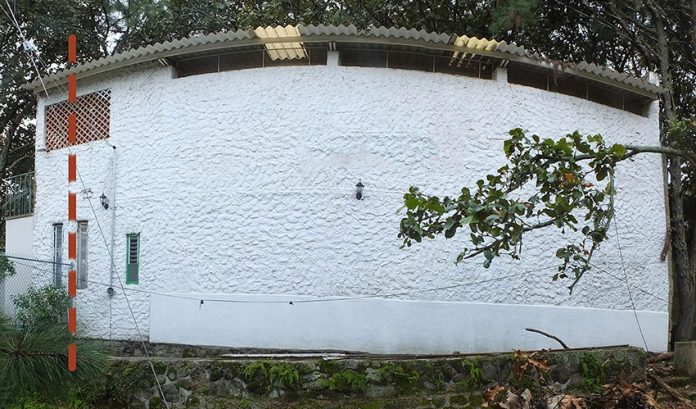Today let’s meet a group of clever people who, I am told, may be found in many rural communities in Mexico, not just my own. These folks are widely known as “Los Morosos” in Spanish, meaning defaulters or delinquents, but perhaps the expression could be best translated as “The Deadbeats.”
Los Morosos may represent a substantial portion of the community and they are so-called because they refuse to pay the annual service fee which keeps the community running. The cuota, as they call it in Spanish, pays for road maintenance, street lighting, gate guards, office upkeep, staff salaries and in the earlier days of my community, also included the distribution of piped water to each home for three hours every day.
Throughout the 50-year history of my community, Los Morosos benefited from these and many other services without paying anything. Why did they do that? Replies to this question varied over the years. The most common excuse was: “I’m sure the mesa directiva (board of directors) is pocketing some of the money they collect, so I will contribute nothing.”
Enter on the scene a presidente de la mesa directiva, whom I will call Don Horacio, though that was not his name.
Don Horacio was one of very few presidentes of this community who actually got involved in things. While most presidentes would rarely be seen outside of a meeting, Don Horacio was right there in the middle of it all, talking to the maintenance crew and checking up on what the Telmex man was doing on top of the pole.
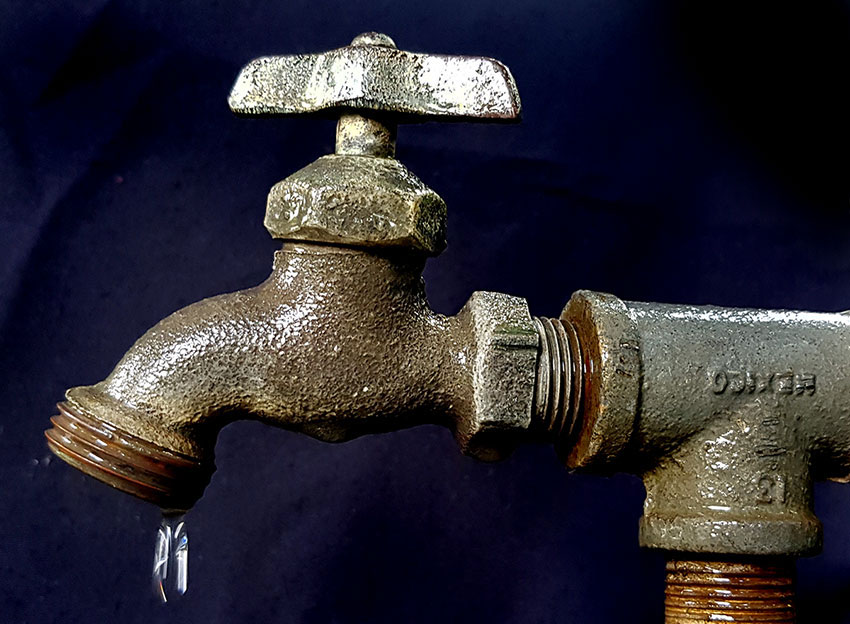
Of course, running a community where half the people don’t pay the service fee poses certain problems and Don Horacio decided he was going to do something about it. His strategy to get The Deadbeats to pay was very simple: cut off their water supply.
No sooner had the maintenance men disconnected Los Morosos from the water distribution system, than the police arrived, looking for our presidente in order to arrest him.
Thus I — as well as Don Horacio — learned that Mexico has a law forbidding anyone to cut off somebody’s water supply.
“It’s a humanitarian law,” I was told. “In Mexico it’s also illegal to evict people. It’s considered inhumane to throw families into the street the way we see it done all the time in Hollywood movies.”
El presidente turned the water back on and didn’t go to jail, but didn’t admit defeat either.
Instead he boned up on the law and devised a truly creative plan: he installed metal washers with tiny holes in them into the water pipes of Los Morosos, reducing their water supply to a trickle.
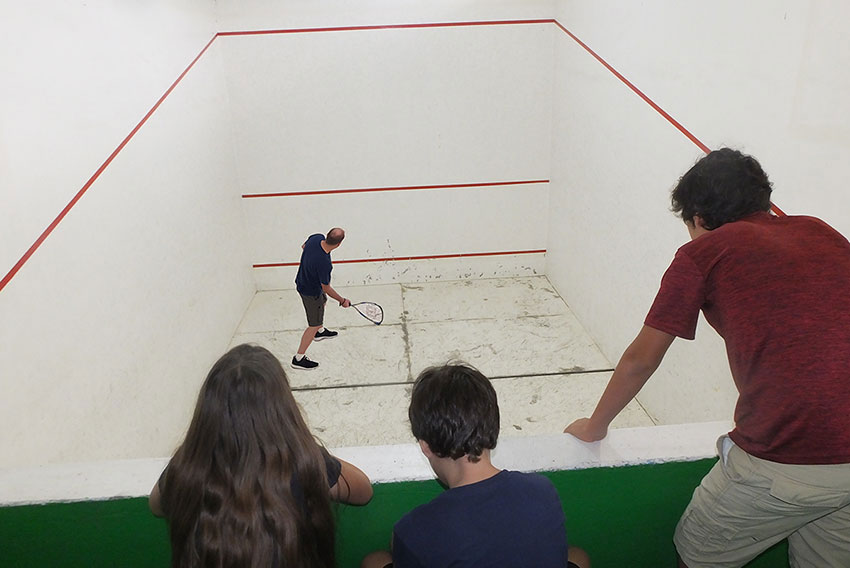
This clever strategy also failed — why I don’t know. Suffice it to say that during the 35 years I’ve lived in this community, there have always been Morosos and no one has ever managed to extract a centavo from them.
By this I do not mean to downplay the resourcefulness and persistence of Don Horacio. As a demonstration, let me tell you the story of the Wayward Squash Court.
This story involves another group of people living in my community whom I call “Los Tramposos,” the Tricky Ones.
These are sly people who devise endless ways to get around rules, regulations and laws. In our community, for example, homes may be only one story high and you can only put one of them on a lot.
These regulations, however, have posed no problems to Los Tramposos, some of whom have managed to squeeze three big, two-story buildings on one little lot. These folks are also knowledgeable about countless ways to obtain electricity without paying for it.
One of those Tricky Ones I’ll call Don Cuco, who had a small property with a house on it.
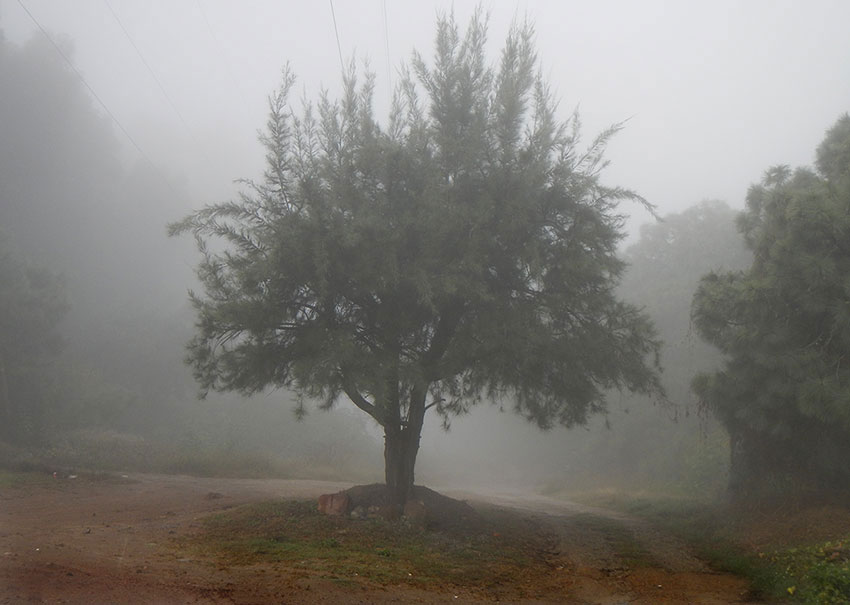
Don Cuco loved to play squash and decided to build his own squash court, a beautiful one with a shower and a balcony big enough for two dozen people to watch the action.
Since there was no room on his property for more than one meter of the huge building he was envisioning in his mind, he decided to put the rest of it on public land which adjoined his own, and like so many of his fellow Tramposos, he managed to pull that off without a hitch.
Well, that is, until Don Horacio came along …
“Don Cuco, what’s this? Almost all of your lovely squash court is sitting on community property.”
“Querido amigo,” gushed Don Cuco, “let’s sit down and discuss this over a bottle of bootleg tequila I got from a friend. It really is “100% agave” unlike what you get in all the commercial brands.”
“Don Cuco, your squash court is on community land, so we’re going to make it a community squash court. You’re going to have to share it with the rest of us in the future.”
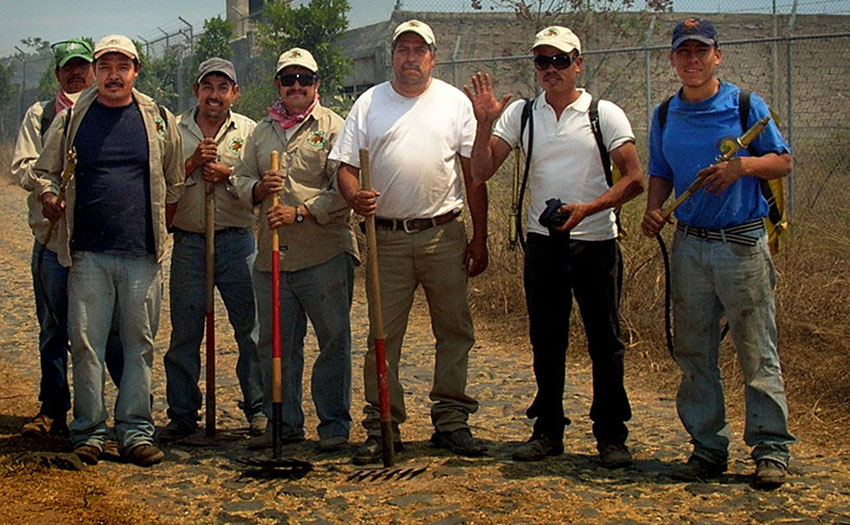
I found it amazing that Don Cuco adamantly refused to share his court with anyone else. Even more amazing was what Don Horacio did next.
One day, the maintenance crew — under orders of el presidente — smashed a huge hole in the wall of that squash court. In went a gang of albañiles — bricklayers, who proceeded to build a wall inside the building, from floor to roof, separating Don Cuco’s 7% from the rest of the court.
Fuming, Don Cuco tried applying Mexico’s two standard problem solvers: la palanca (influence) and la mordida (bribery), but to no avail. Don Horacio would not be moved.
In fact, he who moved was Don Cuco. He sold his house (and his 7% of the squash court) and went far away. When the new owner was asked whether he would sell his part of the building to the community, so it would have a complete squash court, he said, “No, I think that 7% will make a nice house for my dogs. I’m going to keep it.”
So it is we ended up with the world’s only squash court featuring a glorious balcony to which there was no access whatsoever.
This curious building is where I play racquetball today, always with a fond memory of that extraordinary, incorruptible presidente who has passed on to the celestial community whose pearly gates should welcome neither Morosos nor Tramposos … but who knows? I hear they just invited San Pedro to try a heavenly bootleg tequila.
• This is the third installment in my Life in Rural Mexico series. The first was called Bugs, birds, bats and beasts and dealt with the joys, surprises, advantages and drawbacks of living shoulder to shoulder, so to speak, with creatures you might never see in the big city.
The second chapter in the series was entitled When the thunder rolls, the lights go out and focused on the myriad effects of power outages, surges, fluctuations and brownouts together with an examination of just how they are handled by the electricity commission.
The writer has lived near Guadalajara, Jalisco, for more than 30 years and is the author of A Guide to West Mexico’s Guachimontones and Surrounding Area and co-author of Outdoors in Western Mexico. More of his writing can be found on his website.
